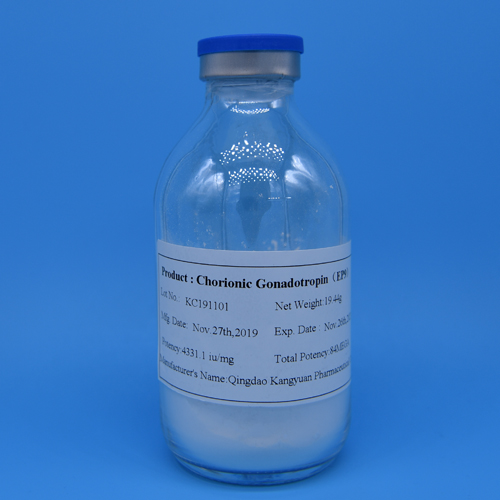Gonadotropin refers to the glycoprotein hormone that can regulate the
development of vertebrate gonads and promote the production and secretion of sex
hormones. Gonadotropin is similar to thyrotropin in that it is composed of two
peptide chains α and β by non-covalent bonds. The glycogroup part is the
individual asparagine, serine or threonine residues on the peptide chain by
covalent bonds. The α and β peptide chains can be separated and recombined.
Gonadotropins are regulated by the hypothalamus, which releases luteinizing
hormone-releasing hormone to regulate pituitary gonadotropins. Gonadotropin
products can also affect the secretion function of the hypothalamus, so their
hormone secretion and release are mutually regulated. The recurrent appearance
of female menstrual cycle is the result of the ups and downs and rhythmic
changes in the secretion of these three hormones. In vertebrates, gonadotropins
include follicle stimulating hormone, luteinizing hormone and lactogen.
Gonadotropin may act on the gonad alone, synergistically or antagonistically,
controlling the maturation of germ cells, the secretion of sex hormones and
other activities of the gonad.

Gonadotropins have been widely used in livestock and aquaculture, but have
no effect on humans. Scientists can make chorionic gonadotropin from the urine
of pregnant women, or a combination of luteinizing hormone and
follicle-stimulating maturation hormone from the urine of menopausal women to
treat hyposexual function.
Above is the relevant content summarized by Kang Yuan's editor. If you want
to know more, please follow us. We will update you regularly about Human
Chorionic Gonadotropin, Human Menopausal Gonadotropin supplier, Urofollitropin
price, Urokinase manufacturer, Hormone API manufacturer.